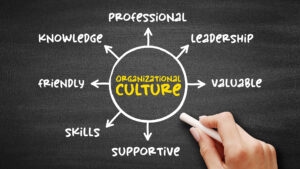In the intensely competitive global environment, team performance is a crucial factor to ensure organizational success. High-performing team is not only about skilled personnel; it comprises cohesive units that work together to achieve shared goals. High-performing teams are often led by effective leaders and executive coaching programs are one of the most powerful tools for leaders.
Know the Dynamics of High-Performing Teams
Such teams have several defining qualities. Psychological safety and trust are the foundation of high-performing teams. It allows team members to express their ideas, take calculated risks, and give honest feedback.
Collaboration ensures team members work together to achieve shared goals and clearly defined objectives give them a unified direction. Additionally, accountability and ownership strengthen high-performing teams as each individual assumes responsibility and supports others to meet expectations.
However, challenges like conflicts, lack of clarity in roles, and miscommunication hinder teams from achieving their complete potential. Executive coaching is an invaluable option in such scenarios and offers customized solutions to enable teams to overcome such obstacles.
How Executive Coaching Supports High-Performing Teams
These programs equip participants with insights and tools that enhance team performance. Particularly, executive coaching helps leaders build their emotional intelligence, which helps them to better manage and understand emotions, which is important for effective communication and conflict resolution.
In addition to individual skills, these programs foster team cohesion by guiding participants to communicate and create shared visions. This aligns team efforts and brings trust within the group.
Executive coaching encourages accountability by assisting participants to establish clear goals and performance parameters. They learn skills to motivate and inspire their team members and effectively delegate to ensure each individual assumes responsibility for their work.
Let us look at some ways that executive leadership coaching programs can help develop effective leaders:
- Foster team collaboration and cohesion
Ensuring a diverse group of individuals work towards a common goal in a dynamic work environment is challenging and requires focus. Coaching programs include team-building activities and strategies to improve collaboration and cohesion among team members. Being led by strong leaders inspires and unites the team members, improves their morale and productivity, and improves employee retention.
- Align objectives and bring accountability
Executive coaching to ensure high-performing teams must clearly define organizational goals and objectives. It maintains concrete targets and establishes success indicators ensuring each team member works towards the same vision.
- Enhance Emotional Intelligence
Increased scrutiny of toxic workplaces, microaggression, and lack of inclusivity pressurizes companies build supportive workplaces prioritizing dignity and respect. Team members desire appreciation, valued, and recognized. Good leaders go beyond decision-making and strategy and develop their emotional intelligence to effective managing emotions – personal and of others.
- Building Adaptability and Resilience
In today’s fast-paced environment, change is constant and high-performing teams not only cope with changes but thrive in such situations. Executive coaching encourages participants to have a growth mindset where change is not seen as a threat but as an opportunity to drive innovation and learning.
- Empowerment and Accountability
Often companies have gender disparities in management roles, which is also seen with socioeconomic barriers and racial inequality. This limits opportunities for diverse individuals to rise into leadership roles. Organizations must consciously create equal paths for underrepresented groups in leadership roles. Coaching can empower individuals from different backgrounds and foster an organizational culture where each person is valued and can contribute to their highest potential.
- Constant Feedback and Improvement
If a team performs badly in a game and receives no feedback, how would they improve their performance? With effective feedback, growth may stagnate or decline. High-performing teams require effective and regular feedback and ongoing guidance. Executive coaching programs equip participants with important traits like active listening, conveying clear ideas, and clear communication.
Companies aiming to develop high-performing teams must identify those areas where coaching will be effective. This may require analyzing performance metrics and seeking feedback to pinpoint certain challenges.
Choosing the right coaching program is important. It is advisable to look for professionals that have a track record in leadership and team development. Working with coaches that have the experience and expertise to ensure long-term success and sustainability.
Building high-performing teams requires continuous efforts and strategic guidance. Executive coaching empowers executives with insights and traits needed to foster accountability, collaboration, and trust. To explore executive training programs, CoachMantra offers the best support for all organizational training needs. Get in touch today!





